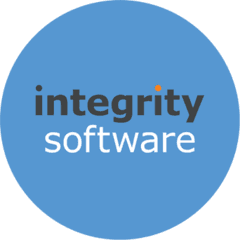Blog
The new tax year: best practice tips
For most companies, the tax year is a landmark date for the accountants, but doesn’t affect day to day operations to a great degree. However, the new tax year is the ideal time to revisit your accounting processes and take steps improve efficiency over the coming months.
Legislative changes
Every new tax year brings legislative changes that affect employees, and employers. This year, the following changes were made:
- An increase in the employment allowance from £2,000 to £3,000. All eligible employers can apply to receive a discount on class 1 national insurance contributions.
- The National Living Wage has come into force. Employees aged 25 or above must earn a minimum of £7.20 an hour, rising to £9 by 2020.
- Changes to the structure of the station pension mean that national Insurance rebates will end. Employers will therefore face a 3.4% increase in NICs (of relevant earnings).
- The VAT registration threshold has risen from £82,000 to £83,000 and the de-registration threshold has increased from £80,000 to £81,000.
- Employers will no longer have to pay national insurance contributions for apprentices under the age of 25, who earn under £3,583 a month. Use category letter ‘H’ in your payroll software.
Tidy records
Now that the accounts for the previous tax year are complete, it’s the ideal time to trawl back through the data and tidy up your records. Try to fill in incomplete or empty fields, and identify data formatting inconsistencies. Look for duplicate records and merge them. Check for errors. Ensure values are in the correct format – for example, dates, currency or Booleans. Spring cleaning your software records may take some time, but it’ll help you significantly when it comes to filing accounts or resolving a legal dispute.
Accounts admin and forecasting
Spend time checking that expenses details are in order, and speak to your accountant about available allowances and whether you’re making full use of them.
Review your figures, the state of your cash flow, and your forecast for the next financial year. The start of a new tax year is also a good opportunity to rewrite your business plan, whilst the figures are fresh in the minds of your employees and directors. For many businesses, these tasks are often delayed until a ‘quiet period’ – and often that period never comes around! Use the start of the tax year to work on important, yet non-critical admin tasks such as adjusting your business plan.
Time to change?
The beginning of the tax year is the perfect time to make a fresh start with your accounting software. If you’ve been struggling with your current system or don’t feel it meets your company’s needs, look elsewhere. Sub-par software can be more of a burden than boon for your business.
If you’re thinking of switching and you work in the construction industry, see what Integrity Software’s specialist construction accounting software can achieve.
© Integrity Software Systems Ltd 2024. Part of the JDM Technology Group
Privacy PolicyCookie PolicyWebsite Terms & ConditionsIntegrity Terms and Conditions
